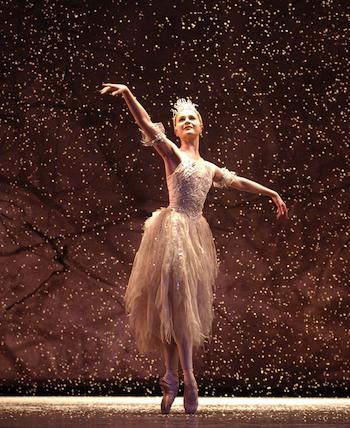Supplements 'beneficial' for vitamin D-deficient ballet dancers
Saturday 30 November 2013 - 12am PST
The study, published in the Journal of Science and Medicine in Sport, was conducted through a collaboration between researchers at the Royal National Orthopaedic Hospital (RNOH), the University of Wolverhampton and dancers at the Birmingham Royal Ballet.
These three institutions are founding partners of the National Institute of Dance Medicine and Science (NIDMS).
To conduct their study, the team split 24 elite classical ballet dancers into two groups. During the 4-month study, one group took oral supplementation of vitamin D3 to the tune of 2,000 IU per day, while a control group did not take any supplements.
Isometric muscular strength and vertical jump height were measured at the start and end of the study. Additionally, the in-house medical team recorded any injuries the dancers experienced.
The researchers found that the dancers who took vitamin D supplements showed greater improvements in muscle strength and vertical performance, while also experiencing fewer injuries, compared with the control group.
Dr. Roger Wolman, consultant in rheumatology, sport and exercise medicine at the RNOH, says:
"Vitamin D is important for bone development and has a wide range of functions. In a deficient state, dancers are at increased risk of bone injuries, and this latest research indicates an increased risk of muscle injury, which can be detrimental to their health and their careers."Following on from their findings, the researchers suggest that medical staff and instructors monitor vitamin D levels in dancers throughout the whole year and provide supplements for them during winter months.
This can help their serum levels return to normal, they say, ultimately leading to improvement in overall performance.
'Findings could cover other sports'

Ballet dancers from the Birmingham Royal Ballet participated in the study, which revealed vitamin D supplements improved their muscle strength and resulted in fewer injuries.
Photo credit: RNOH
While a lack of it can lead to bone deformities, such as rickets, we can get it for free from the sun - vitamin D is made by our body under the skin as a reaction to sunlight.
However, individuals who live in areas of the world with low annual levels of solar irradiation have difficulty getting enough sunlight for their body to efficiently manufacture the vitamin.
The alternative - vitamin D supplementation - has been widely debated in the medical community.
While some researchers have shown that vitamin D could help treat asthma or even help prevent hypertension, others have warned that raising vitamin D levels in healthy people may be potentially harmful.
Still, the researchers from this latest study say supplementation may be the way to go for dancers.
"These findings could also be extrapolated to cover other sports and training activities that take place indoors," Dr. Wolman adds.
Helen Laws, NIDMS Manager at Dance UK, says:
"Traditionally dancers spend between 6 and 8 hours training indoors for 6 days a week throughout the year, and they need to be able to execute highly technical movements during high intensity periods of training and when performing.NIDMS, the first specialist dance clinic in partnership with the NHS, provides a novel approach to the health care of dancers. Injury treatment of dancers costs the dance sector an average of £900,000 ($1.4 million) each year.
This study provides important advice on performance enhancement as well as offering vital insights into the overall health and well-being of dancers."
Written by Marie Ellis
Not to be reproduced without the permission of Medical News Today.
-
The influence of winter vitamin D supplementation on muscle function and
injury occurrence in elite ballet dancers: A controlled study, Wyon MA,
Koutedakis Y, Wolman R, Nevill AM, Allen N, Journal of Science and Medicine in Sport, published online 2013, Abstract
-
Visit our
Sports Medicine / Fitness category page for the latest news on this subject.
- Please use one of the following formats to cite this article in your essay, paper or report:
MLA
Ellis, Marie. "Supplements 'beneficial' for vitamin D-deficient ballet dancers." Medical News Today. MediLexicon, Intl., 30 Nov. 2013. Web.
30 Nov. 2013.
APA
Ellis, M. (2013, November 30). "Supplements 'beneficial' for vitamin D-deficient ballet dancers." Medical News Today. Retrieved from
http://www.medicalnewstoday.com/articles/269535.
Please note: If no author information is provided, the source is cited instead.
